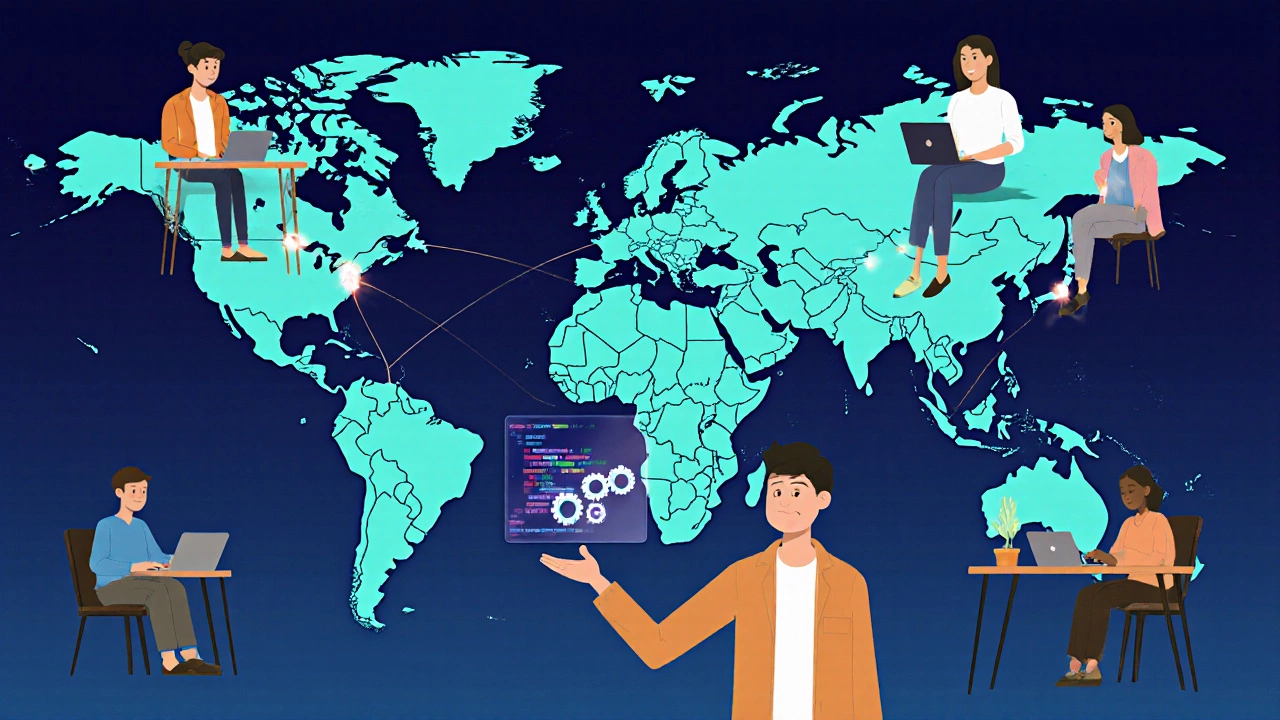
Is Coding a Good Career? Pros, Salary, and Path Options
Explore if coding is a good career with salary data, job outlook, learning paths, pros and cons, and a practical checklist to start coding professionally.
When you hear coding job outlook, the projected growth, demand, and stability of careers in software development and programming. Also known as software developer job trends, it reflects how many companies are hiring, what skills they want, and whether the field is still growing after the tech boom of the early 2020s. The answer isn’t just "yes" or "no"—it’s more like, "It’s different now, and here’s what that actually means for you."
It’s true that the wild hiring sprees of 2021–2022 are over. Big tech companies cut roles, startups froze hiring, and headlines screamed "coding jobs are dying." But that’s not the full story. Look closer, and you’ll see something else: software developer jobs, roles focused on building, maintaining, and improving software systems across industries. Also known as programming jobs, they’re still in high demand—but now they’re spread out beyond Silicon Valley. Hospitals need coders to manage patient records. Banks need them to secure transactions. Schools need them to run learning platforms. Even farms use code to track crops and weather. The job isn’t just about building apps anymore—it’s about solving real problems with technology, anywhere it’s needed.
What’s changing is the kind of coder companies want. If you’re just learning Python or JavaScript because you heard it’s "easy," you’re not wrong—but it’s not enough anymore. Employers now look for people who can ship code that works, fixes bugs fast, and fits into existing systems. That’s why skills like coding careers, long-term professional paths in software development that involve continuous learning and specialization. Also known as tech employment, they now often require understanding DevOps, cloud tools, or even basic cybersecurity principles. You don’t need a computer science degree. You don’t even need to know every framework. But you do need to show you can learn, adapt, and deliver.
Salaries aren’t exploding like they did five years ago, but they’re still solid. Entry-level coders in mid-sized cities in India are making ₹6–10 lakhs a year. Senior developers in Bangalore or Hyderabad pull in ₹20+ lakhs. And if you specialize—say, in AI tools, mobile apps, or data pipelines—you can earn even more. The real advantage? You don’t have to move to a big city to find work. Remote jobs are common, and many companies hire based on skill, not location.
Here’s the thing: coding isn’t a magic ticket to riches. It’s a job. Like any job, it has ups and downs. Some days you’ll feel like a genius. Other days you’ll stare at an error message for hours. But if you’re willing to keep learning, stay curious, and build real things—not just tutorials—you’ll find plenty of opportunities. The coding job outlook isn’t about hype. It’s about steady, practical demand. And that’s not going away anytime soon.
Below, you’ll find real guides on what coding actually pays, how hard the job really is, which languages to learn first, and where the best opportunities are hiding. No fluff. Just what works.

Explore if coding is a good career with salary data, job outlook, learning paths, pros and cons, and a practical checklist to start coding professionally.